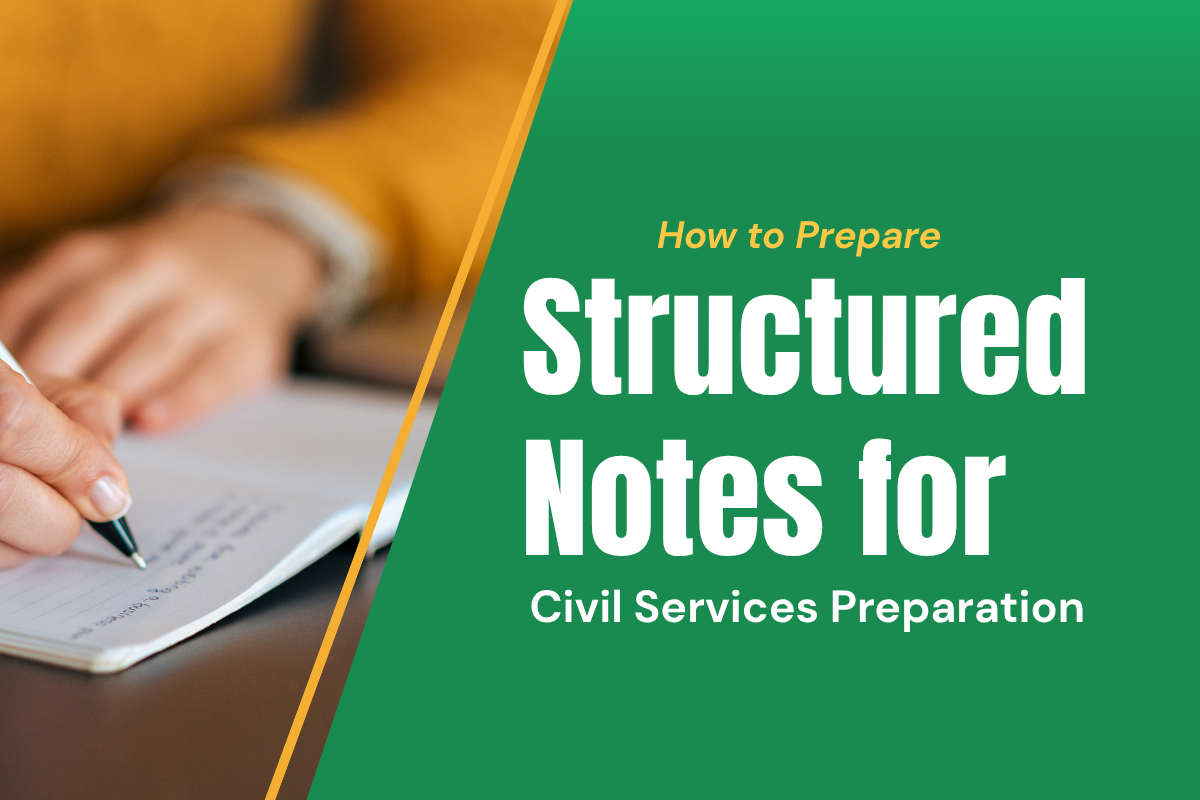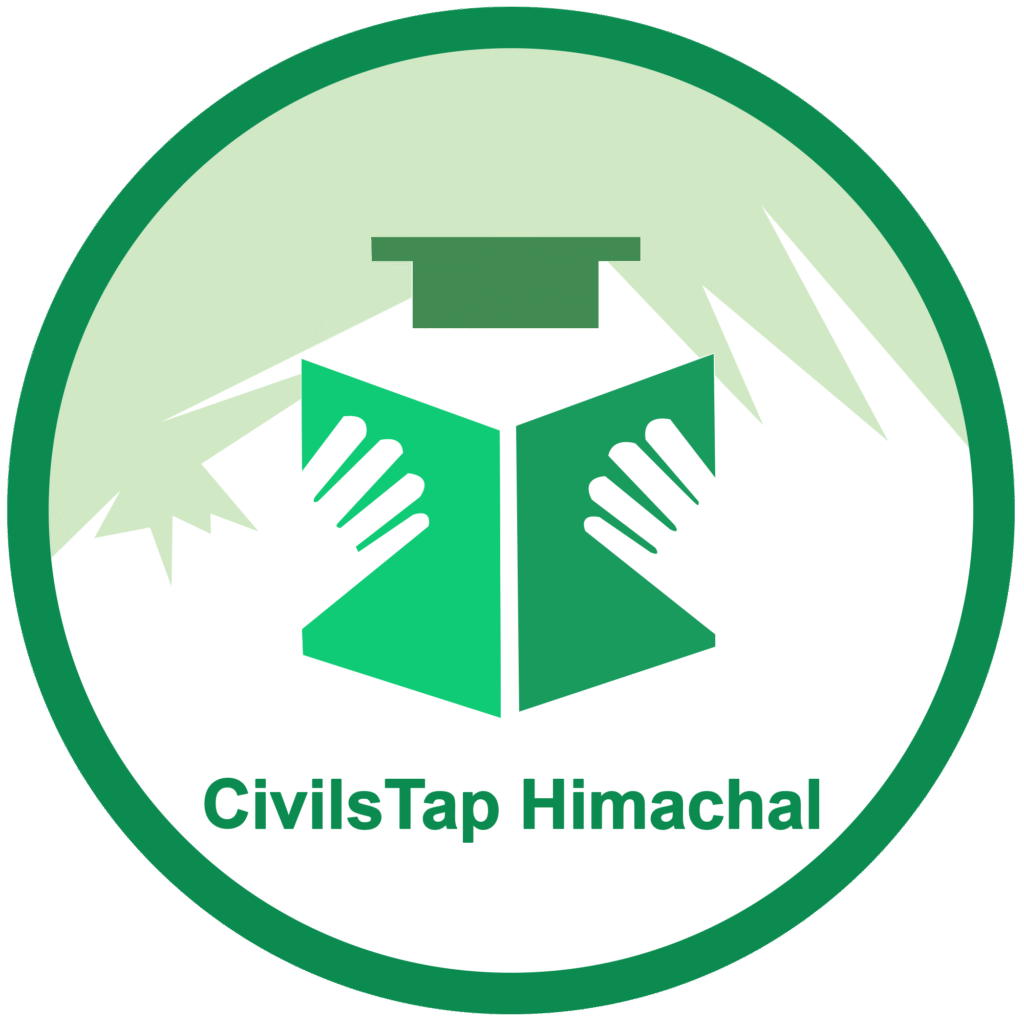
How to Preprare Structured Notes in Smart Way
Preparing structured notes is one of the smartest ways to strengthen your Civil Services Exam preparation. Whether you are targeting UPSC, HPAS, or any other State PSC, well-organized notes help you retain information longer, revise faster, and connect topics effectively during answer writing.
At CivilsTap, we believe that success in competitive exams isn’t about how much you study — it’s about how smartly you prepare. Let’s explore how you can prepare structured notes that make your preparation efficient and exam-ready.
1. Understand the Syllabus First
Before making notes, get a solid understanding of the complete UPSC or HPAS syllabus. Categorize it into Prelims and Mains sections and further divide topics under GS Paper I, II, III, and IV.
Once you know the scope of each topic, you’ll avoid unnecessary content and focus only on exam-relevant material.
👉 Explore structured Courses by CivilsTap to get syllabus-oriented guidance and expert-led classes designed to simplify your preparation.
2. Follow a Topic-Wise and Source-Wise Approach
Instead of writing everything from multiple sources in one place, create notes topic-wise and source-wise. For example:
Topic: Indian Polity
Source: Laxmikanth, CivilsTap Notes, Current Affairs
This approach helps you consolidate information and reduces the time wasted searching for facts later.
For the latest updates that enrich your notes, visit CivilsTap’s Current Affairs section, where daily, weekly, and monthly compilations are available.
3. Keep Notes Short, Crisp & Visually Organized
The purpose of structured notes is quick revision. Avoid lengthy paragraphs and instead use:
Bullets and flowcharts
Tables for comparison
Diagrams or mind maps
Headings and subheadings
A visual format improves understanding and makes revision more engaging.
Also, explore our Study Material section for topic-wise structured PDFs, handwritten notes, and value-added content designed by expert faculty.
4. Integrate Current Affairs Smartly
Many aspirants make the mistake of keeping current affairs separate from their main notes. The smart way is to integrate current affairs into your static topics.
For example:
Static Topic: Environment — Biodiversity
Add Current Affairs: Recent COP Summit outcomes or a new wildlife protection initiative.
This method helps in analytical answer writing and ensures better understanding of concepts in a dynamic context.
You can stay updated daily through CivilsTap’s Current Affairs and Daily Quiz sections to reinforce what you’ve learned.
5. Revise Regularly and Update Notes
Your notes are only valuable if they evolve with your preparation. Make it a habit to:
Revise weekly
Add new insights from mock tests or lectures
Highlight key points in different colors
Regular updates keep your notes relevant and refined till the final exam.
For additional resources, check Free Downloads where you’ll find model answers, toppers’ notes, and value-added materials for free.
6. Test Your Notes Through Practice
Structured notes should help you apply knowledge, not just store it. After every major topic, attempt practice questions or short tests to see how effectively you can recall and use your notes in answers.
Visit CivilsTap’s Daily Quiz to test your understanding with topic-wise questions aligned with the latest exam trends.
Points To Be Noted
Smart note-making is not just about writing — it’s about thinking, organizing, and connecting concepts in a way that supports long-term retention and faster revision.
With CivilsTap’s structured courses, updated current affairs, and free study resources, you can prepare your notes the smart way and stay ahead in the competition.
👉 Begin your preparation today with CivilsTap’s comprehensive Courses and make every note count toward your success!
Latest Blogs
Ask your Query
Browse By Category
- Daily Current Affairs (4)
- EPFO (4)
- HP Allied (9)
- HPAS/HAS (30)
- IAS (34)
- Monthly Current Affairs (1)
- PCS (32)
- UPSC (31)
- Weekly Current Affairs (2)
- Yearly Current Affairs (5)

Archives
- January 2026 (2)
- December 2025 (8)
- November 2025 (10)
- October 2025 (10)
- September 2025 (10)
- August 2025 (10)
- July 2025 (6)

 January 6, 2026
January 6, 2026






Leave Comment